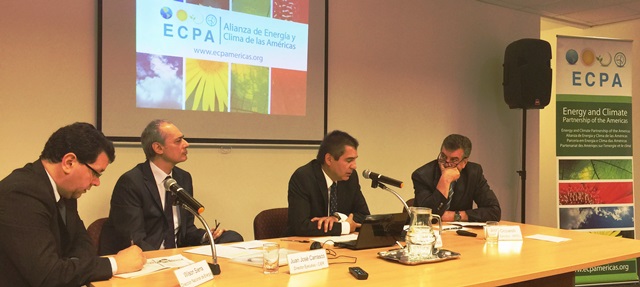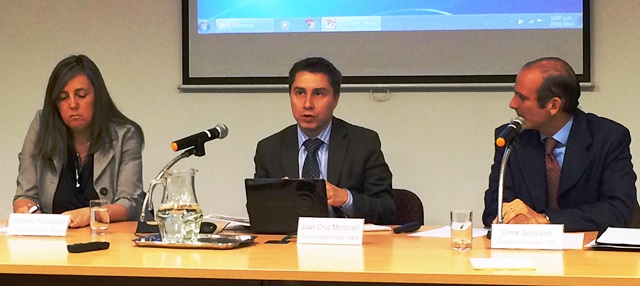
With infrastructure costs for renewable energy declining, renewables are becoming increasingly viable for Latin America and the Caribbean. A recent workshop looked at some of the advantages of renewable energy sources: They can help countries diversify their energy matrix, improve the quality of life for people who live in isolated areas currently off the grid, and advance lower-carbon economic growth.

The regional technical workshop on “Policies for the Promotion of a Sustainable Energy Sector”—held in Montevideo, Uruguay, on October 27—examined the evolving outlook for renewable energy. Technological improvements and growing demand are among the factors that have helped bring down overall infrastructure costs in recent years and have made energy sources such as wind and solar power more efficient and competitive, participants in the workshop learned.
The participants, who included representatives of several South American countries, multilateral institutions, and civil society organizations, agreed that improved interconnection will be important to be able to efficiently incorporate renewable energy sources into the region’s electricity mix. They discussed the importance of identifying and mapping out areas with the best potential for generating energy from renewable energy sources, so as to maximize efficiency, and stressed the need for the countries to maintain an ongoing dialogue and keep exchanging information on the subject.

The workshop closed with a debate on solutions and initiatives to foster and facilitate access to energy for the most vulnerable and remote communities, where renewable energy sources can play a critical role. Participants heard about Uruguay’s policies to ensure access to energy as a human right and to address energy poverty as a multidimensional problem with important social, economic, and technical implications. Uruguay has adopted a comprehensive approach that includes coordinated action among the ministries of the environment, housing and energy.
This was the last in a series of four regional technical workshops the ECPA Clearinghouse has held in the 2013-2014 period.
 View Map
View Map